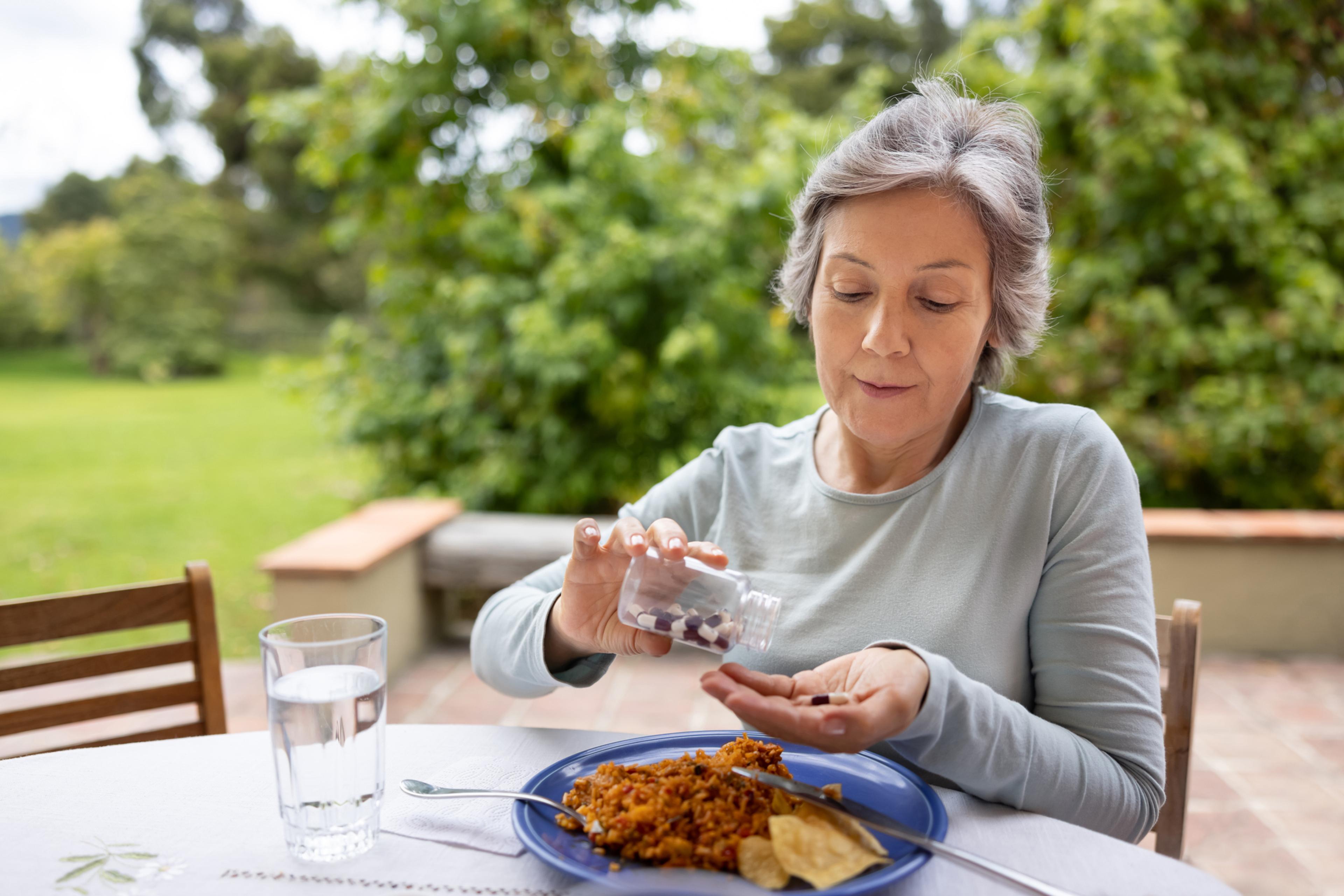5 Food and Medication Combinations I’d Avoid
Jake Newby
| 4 min read

A typical question patients ask after receiving a new prescription is how that drug might mix with other medications they take. Or how that prescription meshes with alcohol. It’s much less common for patients to ask doctors about how a new medication interacts with certain foods.
If you’re not asking your primary care provider’s (PCP) that question, don’t forget to at least read your medication labels thoroughly. Several dangerous food and medication combinations can either reduce the effectiveness of your prescription or cause you to have a negative reaction.
Here, Blue Cross Blue Shield of Michigan Associate Medical Director of Utilization Management Dr. Gina Lynem-Walker, MD, gives you a deep dive into five of the most hazardous combos.
1. I’d avoid mixing grapefruit juice with antihistamines, cholesterol-lowering drugs (statins) and blood pressure drugs.
Unlike other citrus fruits, grapefruit contains a compound called furanocoumarins, which block a common drug-metabolizing enzyme called CYP3A4. It’s a food that forces the body to metabolize drugs abnormally, leading to blood levels of the drug that are either higher or lower than normal.
For this reason, if you drink a lot of grapefruit juice while taking statins, the drug may struggle to metabolize. It then stays in your blood and increases your risk for liver, muscle and kidney damage.
In addition to the drugs listed above, grapefruit and grapefruit juice have this same negative effect when mixed with thyroid replacement drugs, birth control, stomach acid-blocking drugs dextromethorphan, the cough suppressant dextromethorphan and certain corticosteroids that treat Crohn’s disease or ulcerative colitis.
2. I’d avoid mixing bananas and other potassium-rich foods with Angiotensin-converting enzyme (ACE) inhibitors.
Bananas are an incredibly nutritious fruit and great for digestive health, but if you are prescribed ACE inhibitors for a heart condition, the potassium in bananas can pose a potentially fatal reaction. Potassium helps provide electrical signals to heart-muscle cells and other cells. So, consuming while on ACE inhibitors could increase the amount of potassium in your body and may lead to an irregular heartbeat or heart palpitations.
Examples of ACE inhibitors include captopril (Capoten), enalapril (Vasotec), and lisinopril (Prinivil, Zestril).
3. I’d avoid mixing leafy green vegetables with blood thinners/anticoagulants like warfarin.
Veggies like broccoli, Brussels sprouts, cabbage, kale and spinach shouldn’t be mixed with blood thinners. Foods ripe with vitamin K such as these can reduce the drug’s ability to thin the blood. And if the person has heart disease, mixing these leafy-green vegetables with blood thinners can even trigger a heart attack or stroke.
4. I’d avoid mixing dairy and antibiotics in the tetracycline class.
Cheese, yogurt, milk, ice cream, calcium supplements and antacids do not mesh well with drugs in the tetracycline class, taken to manage and treat a wide range of bacterial infections. Doxycycline and minocycline, for example, are tetracyclines prescribed to treat bacterial pneumonia.
These calcium-containing dairy products can inhibit drug absorption, potentially rendering the tetracyclines ineffective. Speak with your PCP specifically about dairy intake if you are on one of these antibiotics, because in some cases it is safe to consume dairy either two hours before or six hours after taking your medication.
5. I’d avoid mixing cured meats, aged cheeses and soy with Monoamine Oxidase Inhibitors (MAOI) anti-depressants.
MAOIs are an older class of anti-depressants that works to prevent the breakdown of a substance called tyramine – an amino acid – within the body. Aged foods and beverages contain tyramine. When tyramine levels get too high while taking MAOIs, a sudden rise in blood pressure can occur, which can then result in symptoms like headaches, sweating, dizziness, nausea and vomiting, pain or stiffness in the neck and chest pain.
If you are prescribed MAOIs, prevent negative side effects by only consuming fresh foods, while avoiding aged foods such as:
- Aged cheeses
- Alcohol
- Cured meats
- Fermented foods
- Soy products like miso, tofu and soy sauce
- Tinned dairy products like milk and sour cream
- Very ripe bananas
Read more from the "5 Things" Series:
- 5 Things to Limit or Avoid When Living with Diabetes
- 5 Things I’d Never Do as a Dietitian
- 5 Things I'd Never Do for my Skin
Photo Credit: Getty Images





